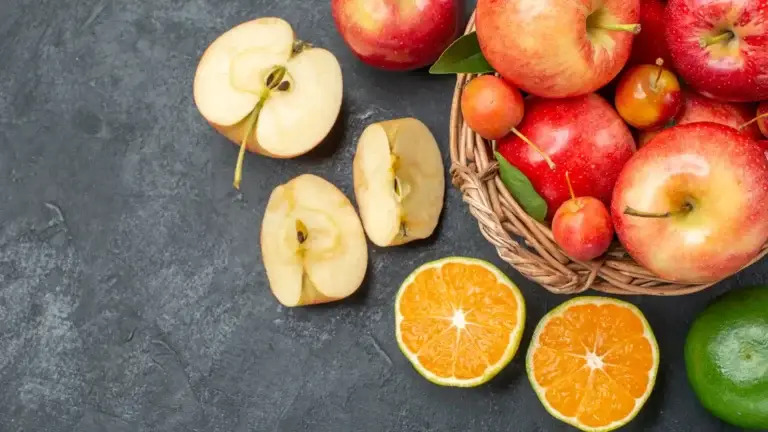High-fibre foods for constipation are essential in our quest for healthier living. Do you know? According to an Indian survey, nearly 22% of India’s adult population suffers from constipation, and Kolkata tops the charts with 28%.
A common digestive problem that can interfere with day-to-day living is constipation, which can be effectively relieved by including certain foods in your diet, along with sufficient fluid intake with the food.
Since maintaining digestive health is essential, we at Chirag Global Hospitals have compiled a thorough list of the top high-fibre foods for constipation.
Commonly Available High-Fibre Foods for Constipation Relief
Horse Gram:
Horse gram, a lesser-known but highly nutritious legume, is rich in fibre, which makes it an excellent choice for aiding digestion. A single serving can provide a significant portion of the daily recommended fibre intake.
This legume bulks up stool and promotes smoother bowel movements, reducing the symptoms of constipation. To incorporate horse gram into your diet, consider adding it to soups or salads or cooking it as a side dish seasoned with herbs and spices.
Ragi:
Ragi, or finger millet, is another fantastic source of dietary fibre. Available primarily in malt or porridge, ragi can be a soothing, fibrous addition to any diet. Regular consumption helps maintain digestive health and prevent constipation.
Ragi porridge for breakfast can kickstart the digestive process for the day, while ragi malt is a refreshing, nutritious drink to include in your diet.
Incorporate Ghee in a Regular Diet:
While ghee is a form of fat, it also aids digestion. Adding a moderate amount of ghee to a regular diet can help lubricate the intestines and facilitate the easier passage of stools.
This can be particularly beneficial for those suffering from constipation. Ghee can be added to hot cooked dishes or even to warm beverages like milk to enhance absorption and ease constipation.
Barley:
Barley is a wholesome grain packed with soluble and insoluble fibre, making it an excellent choice for digestive health. It helps with regular bowel movement and balances the gut flora, supporting overall gastrointestinal health.
Barley can be enjoyed in many forms, from barley water, a popular digestive aid, to being incorporated into bread, soups, and stews.
Whole Wheat:
Whole wheat is superior to refined grains because it retains all parts of the grain kernel, including the fibre-rich bran. Regular intake of whole wheat products can significantly improve bowel regularity and prevent constipation.
For a simple dietary shift, substitute white bread and pasta with whole wheat alternatives to increase your fibre intake effortlessly.
Karjura (Dates):
Dates are not only delicious but also a rich source of fibre. They contain soluble and insoluble fibre, which helps draw water into the digestive tract and promotes quicker bowel movements.
Dates can be eaten alone, added to dairy products like yoghurt, or used in baking to add natural sweetness and digestive benefits.
Grapes:
Grapes are a juicy fruit with a high water and fibre content, making them ideal for preventing and alleviating constipation. The skin of grapes contains insoluble fibre, which adds bulk to stool and speeds up its passage through the intestines.
Eating a small bowl of grapes often can contribute to a healthy digestive system and prevent the discomfort of constipation.
Milk:
While milk is not high in fibre, it can be part of a balanced diet to prevent constipation when combined with other fibre-rich foods. It is an excellent source of vitamins, proteins, and minerals, particularly calcium.
Some people find that warm milk can help stimulate bowel movements, although this can vary from person to person. It’s essential to monitor how your body responds to milk in your diet and adjust accordingly.
High-Fibre Fruits For Constipation Relief
Some fruits that can soften tools are:
Apples:
The timeworn slogan, “An apple a day keeps the doctor away,” still fits, especially when dealing with constipation. Apples are high in fibre, including pectin (a soluble fibre that aids bowel regularity). This is why they are great at softening tools, eventually leading to bowel movements. In addition, apples include pure sugars, including fructose, that can assist the digestive function by acting as a mild laxative.
How To Eat: Slice apples and have them as a snack, or add them to your salad.
Papayas:
Thanks to their high water and fibre levels, papayas are already popular as one of the best fruits for overall digestion. They are an excellent option for supporting gut wellness and reducing constipation because they are nutritious, sweet, and a great source of fibre, vitamins, and minerals.
How To Eat: Slice them and eat them raw. Or, if you want a bit of variety, grill them, add yoghurt, and sprinkle some cinnamon powder on them for a tasty dessert.
Conclusion
Constipation need not be a roadblock to your well-being. Adopting effective home remedies and seeking constipation treatment at Chirag Global Hospital can unlock relief and regain control over your digestive health. Incorporate high-fibre foods in your diet for constipation.
Don’t let constipation hinder your daily life — take proactive steps toward a comfortable and fulfilling lifestyle today! Book an appointment today for your ongoing constipation stress at Chirag Hospitals.
Continue reading here: High Fibre Food for Consitipation Relief





Comments